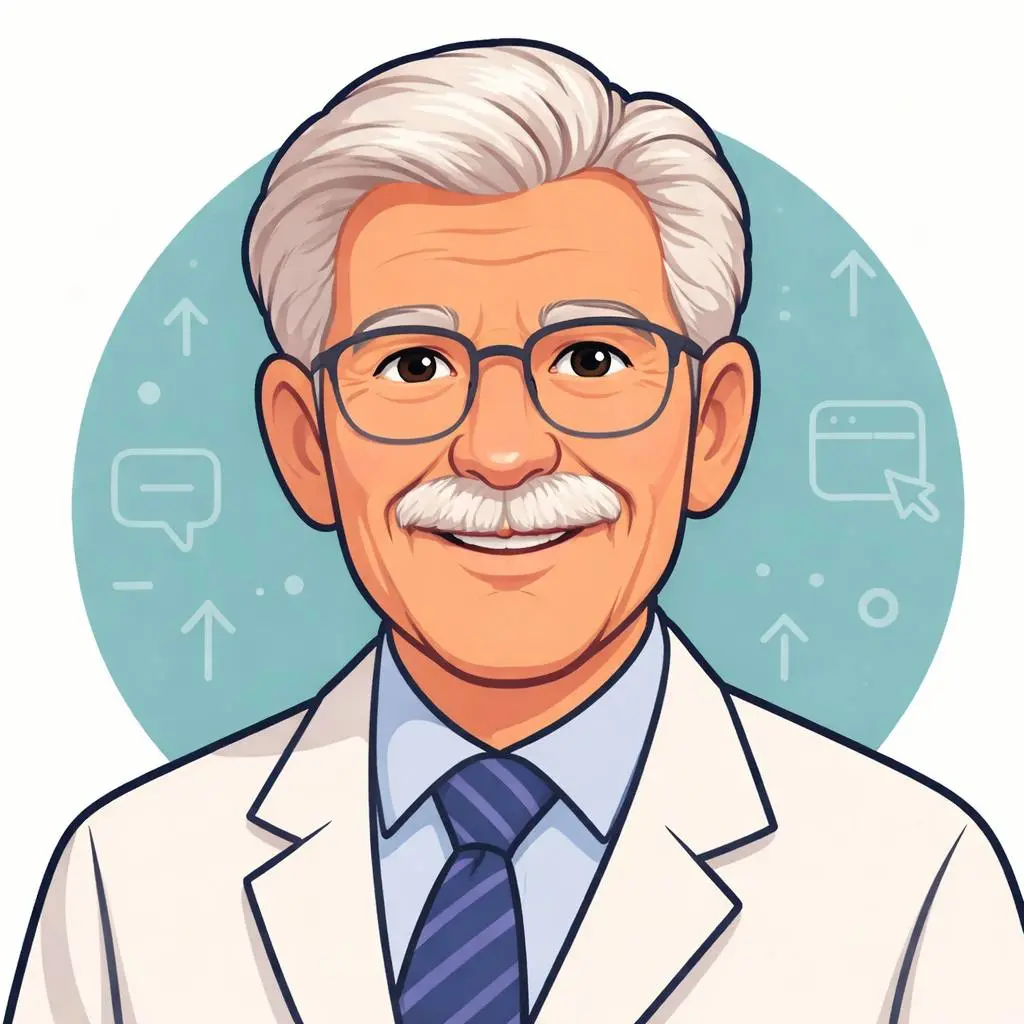Mental health in the elderly is an important issue that often does not receive the attention it deserves. With the increase in life expectancy, more and more people are facing mental challenges in old age, with the use of medications becoming a significant part of maintaining quality of life. At Pharma Care, we believe that comprehensive and accurate information is the key to proper management of mental health among the elderly.
In this article, we will review the complex relationship between medications and mental health in the elderly, examine the unique challenges facing this population, and offer practical tools for dealing with them.
Mental health in the elderly – a snapshot
Mental health in older age is influenced by a variety of biological, psychological, and social factors. As we age, physiological changes occur in the brain, and at the same time, many seniors deal with loss, loneliness, declining physical function, and changes in social and economic status.
It is estimated that 151% of people over the age of 60 suffer from some kind of mental disorder, with depression, anxiety and cognitive disorders being the most common. However, only about a third of older people with mental health problems receive appropriate treatment.
Mental disorders are common among the elderly.
- Depression – Sometimes appears with different symptoms than at a young age, and is therefore more difficult to diagnose
- anxiety – Especially common among elderly people dealing with chronic illnesses
- Dementia – A cognitive disorder that affects memory, thinking, and behavior
- Sleep disorders – Significantly affect quality of life and mental health
- Behavioral disorders – Especially in elderly people with cognitive decline
Medications in the Elderly – Unique Challenges
Medication use in the elderly poses unique challenges, especially when it comes to medications for mental health problems. The aging body processes medications differently, making seniors more susceptible to side effects and drug interactions.
Physiological changes that affect drug activity
- Decreased kidney and liver function – Slows the elimination of drugs from the body
- Changes in body composition – Less water and more fat affect the dispersion of drugs
- Decreased digestive system function – Affects the absorption of drugs
- Changes in the blood-brain barrier – Increases the penetration of drugs into the brain
Additionally, polypharmacy is a common occurrence among seniors. Studies show that approximately 40% of seniors take 5 or more medications per day, significantly increasing the risk of dangerous interactions and side effects.
The main groups of medications for treating mental health problems in the elderly
Below is an overview of the main groups of medications used to treat mental health problems in the elderly, their advantages, disadvantages, and their unique suitability for this population:
| Drug group | Main uses | Special considerations in the elderly |
|---|---|---|
| SSRI antidepressants | Depression, anxiety, eating disorders | Relatively safe for the elderly, but may cause hyponatremia and falls |
| Tricyclic antidepressants | Depression, chronic pain | Not recommended for the elderly due to anticholinergic side effects |
| Antipsychotic medications | Schizophrenia, behavioral disorders in dementia | Increased risk of mortality in elderly with dementia, low dose should be used |
| Benzodiazepines | Anxiety, sleep disorders | Increased risk of falls, confusion, and cognitive impairment, recommended for the short term only |
| Mood stabilizers | Bipolar disorder | Requires monitoring of blood levels and kidney and liver functions |
| Dementia medications | Alzheimer's, vascular dementia | Limited effectiveness, it is important to consider the risk-benefit ratio |
A personalized approach to drug treatment for the elderly and medications for the elderly
The pharmacological treatment of mental health problems in the elderly requires a personalized approach that takes into account the unique characteristics of each patient. The principle of "less is more" is central to the treatment of the elderly.
Guiding principles for optimal drug therapy
- Start with a low dose and increase gradually – "Start low, go slow"
- Choosing medications with a minimal side effect profile
- Avoiding drugs on the Beers list (Medications not recommended for the elderly)
- Checking interactions between all medications that the patient is taking
- Periodic evaluation of treatment effectiveness and considering dose reduction or discontinuation of treatment when possible
Drug interactions and side effects in the elderly and medications
Drug interactions are one of the most significant challenges in treating the elderly. As the number of medications increases, the risk of harmful interactions increases exponentially.
Important to know: Approximately 301% of hospitalizations in the elderly are related to drug side effects or drug interactions.
Common side effects of psychiatric medications in the elderly
- Sedation and drowsiness – Increases the risk of falls
- Anticholinergic effects – Dry mouth, constipation, confusion, visual disturbances
- Orthostatic hypotension – Drop in blood pressure when standing
- Heart rhythm disorders – Especially QT prolongation
- Hyponatremia – Low sodium levels in the blood
- Cognitive impairment – Confusion, delirium
- Extrapyramidal effects – Tremor, muscle stiffness
Integrating pharmacological and non-pharmacological approaches to mental health in the elderly
The best approach to treating mental health problems in the elderly combines medication with non-pharmacological interventions. In many cases, this combination allows for reduced medication dosage and improved treatment outcomes.
Recommended non-pharmacological interventions
- Adapted physical activity – Improves mood and sleep
- Cognitive-behavioral therapy (CBT) – Effective for depression and anxiety
- Social activity – Reduces loneliness and improves mood
- Arts therapy – Music, art, dance
- Cognitive practice – Preserves mental function
- Light therapy – To improve sleep disorders and seasonal depression
The role of the therapist and family in managing drug treatment
Caregivers and family members play a crucial role in managing medication for seniors. They can help monitor medication adherence, identify side effects, and communicate with medical staff.
Tools for effective medication management
- Medicine distribution boxes (Pillbox) – helps organize medications by day and time
- Reminder apps – Helps you remember when to take each medication
- An updated list of all medications – Including dosage, frequency, and purpose of treatment
- Continuous communication with the attending physician – Reporting side effects or changes in condition
Frequently Asked Questions
Should all seniors take medication for mental health problems?
No, medication is not necessary for every senior with a mental health problem. In many cases, especially mild to moderate cases of depression or anxiety, non-pharmacological interventions such as exercise, psychotherapy, and social support may be effective. The decision to use medication should be made after a comprehensive assessment and consideration of individual risk factors.
How can you distinguish between dementia symptoms and medication side effects in the elderly?
This is a challenging question, as medication side effects can mimic dementia symptoms. The main difference is usually in the timing of onset—if the cognitive changes appear around the start of a new medication or a change in dosage, a side effect should be suspected. Additionally, symptoms that improve after stopping the medication suggest that it was the cause. It is important to consult a doctor before making any changes to your medication.
Are seniors and depression medications more likely to suffer from more serious side effects?
Yes, older adults are more susceptible to the side effects of antidepressants due to age-related physiological changes. SSRIs, which are considered relatively safe, can cause hyponatremia, falls, and bleeding in the elderly. Tricyclic antidepressants can cause serious anticholinergic effects and heart rhythm problems. Therefore, treatment is usually started at a low dose with gradual increases and close monitoring.
What are the recommendations regarding the use of sedatives and sleeping pills in the elderly?
Mental health in the elderly is affected by sleep quality, but the use of benzodiazepines and similar drugs to treat sleep disorders in the elderly should be limited as much as possible. These drugs increase the risk of falls, fractures, confusion, and cognitive impairment. The recommendation is to prefer non-drug methods to improve sleep, and if medications are needed, to use the lowest possible dose and for the shortest possible duration.
How can the number of medications an elderly person takes be reduced?
Reducing the number of medications (deprescribing) is an important process in the care of the elderly. The recommended approach is to periodically review all medications with the treating physician, examine the effectiveness and need for each medication, and consider gradually reducing or discontinuing medications that are not essential or whose risks outweigh the benefits. It is important that the process be controlled and gradual, and not to discontinue medications independently.
Medical warning: The information in this article is for informational and educational purposes only and is not a substitute for professional medical advice. Do not change medication, start a new treatment, or stop an existing treatment without consulting a doctor. Medications in the elderly require personal adjustment and professional monitoring. Please consult your doctor regarding any questions or concerns regarding your health or your medication.

פרופ’ אלון גרין הוא מומחה לפסיכיאטריה קלינית ומחקר תרופתי, עם התמחות בפיתוח והתאמת תרופות מרשם למגוון מצבים נוירו-פסיכיאטריים. בעל ניסיון של למעלה מ־35 שנה בעבודה קלינית ואקדמית, וכיהן כמרצה ופרופסור אורח במספר אוניברסיטאות מובילות בארץ ובחו”ל. עמד בראש יחידות מחקר וטיפול בבתי חולים ציבוריים ומרכזים רפואיים מתקדמים. תחומי עיסוקו כוללים קשב וריכוז (ADHD), הפרעות חרדה והרגעה, דיכאון קליני והפרעות מצב רוח, וכן טיפולים תרופתיים תומכי דיאטה ואיזון מטבולי. משלב גישות מבוססות ראיות עם חדשנות פרמקולוגית, ופרסם עשרות מאמרים מקצועיים בכתבי עת מדעיים, תוך תרומה משמעותית להבנת מנגנוני פעולה של תרופות והשפעתן הקלינית.







